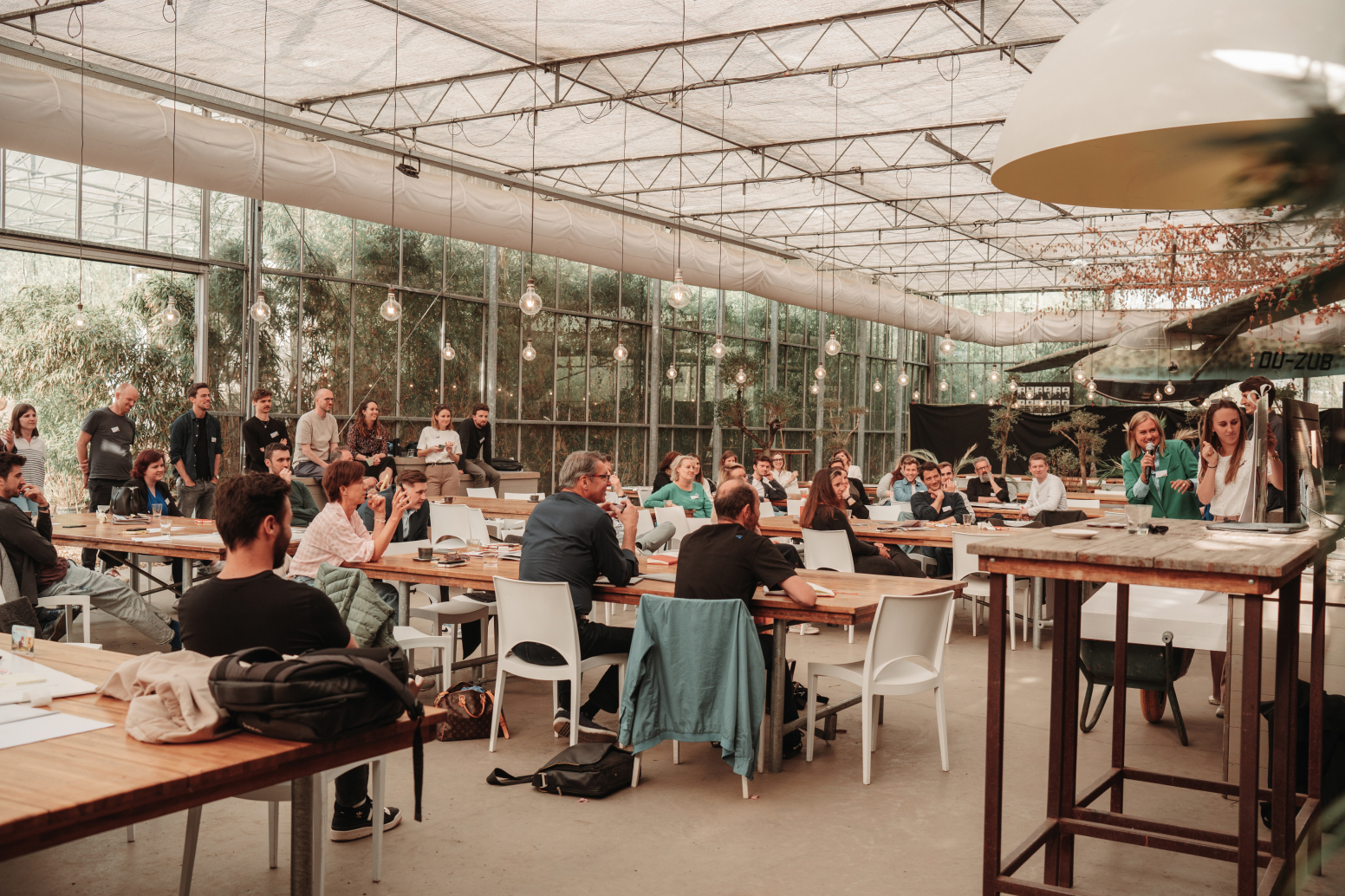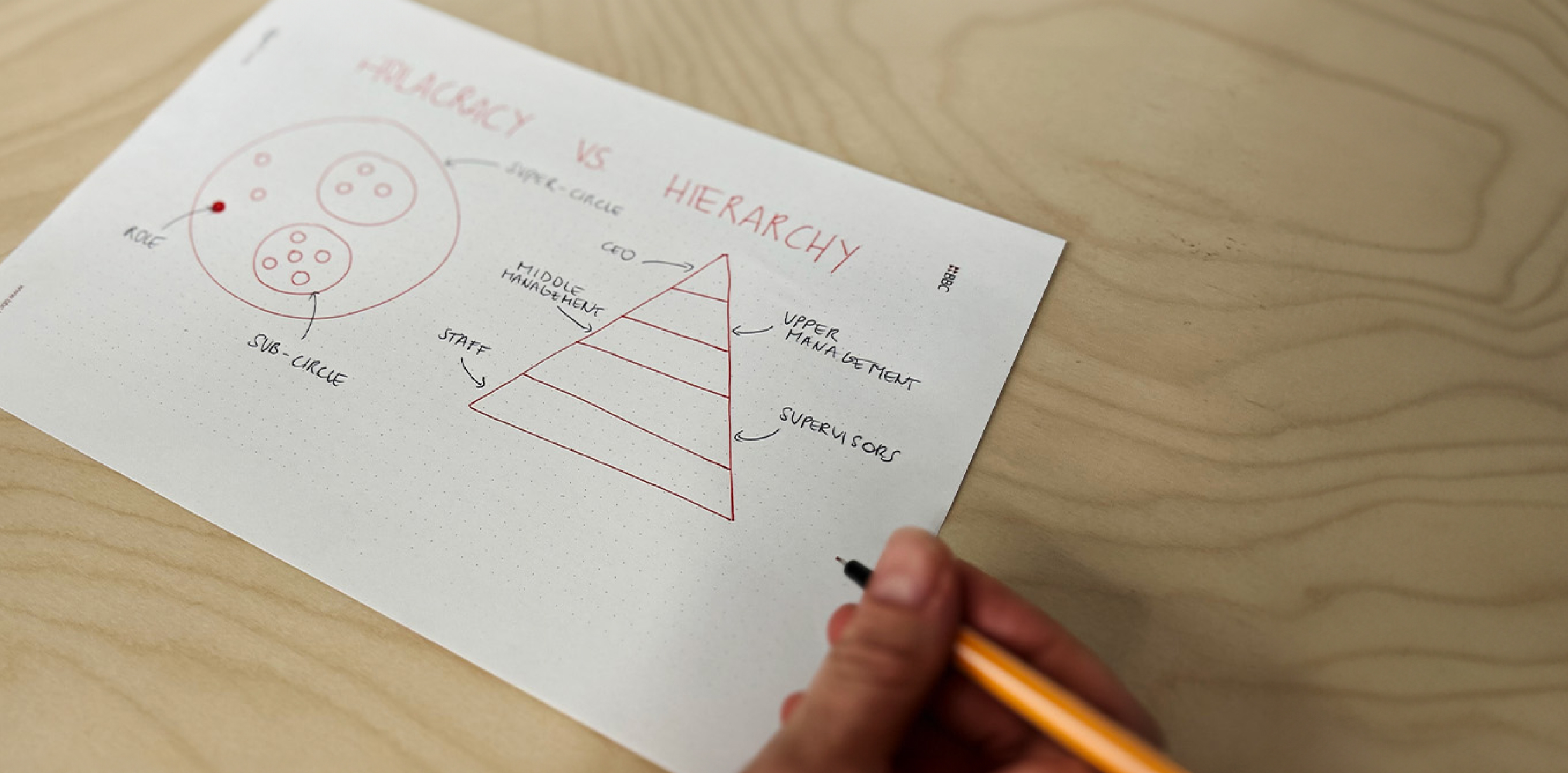


A classic company structure with a boss and middle management? Not at BBC. We work in a holacracy.
Sure, there are arguments to be made about the name, but we suspect you’ll agree with the heart of the concept!
For the language nerds among us: Holacracy comes from Greek. ‘Holon’, meaning ‘part of the whole’ and ‘cracy’, meaning ‘rule’. And honestly, that’s about it. At BBC, you decide where our organisation goes. Together with your colleagues.
And of course, there is your talent. How do you want to put that to use in our organisation? What makes you happy, and how does your skill help our clients? BBC is all about the win-win, where everyone can grow!

Why? A pleasure to work with.
It’s one of our core values, one that lies close to our heart. We believe that by giving feedback and taking responsibility, we can cooperate better, and have more fun doing it.
Sounds cool. But how does a holacracy actually work?
In short:
All of the above might resemble the rules of a board game.
Don’t worry: we’re already playing the game without having to think about it.
Open, with trust and respect. That’s how it works here.